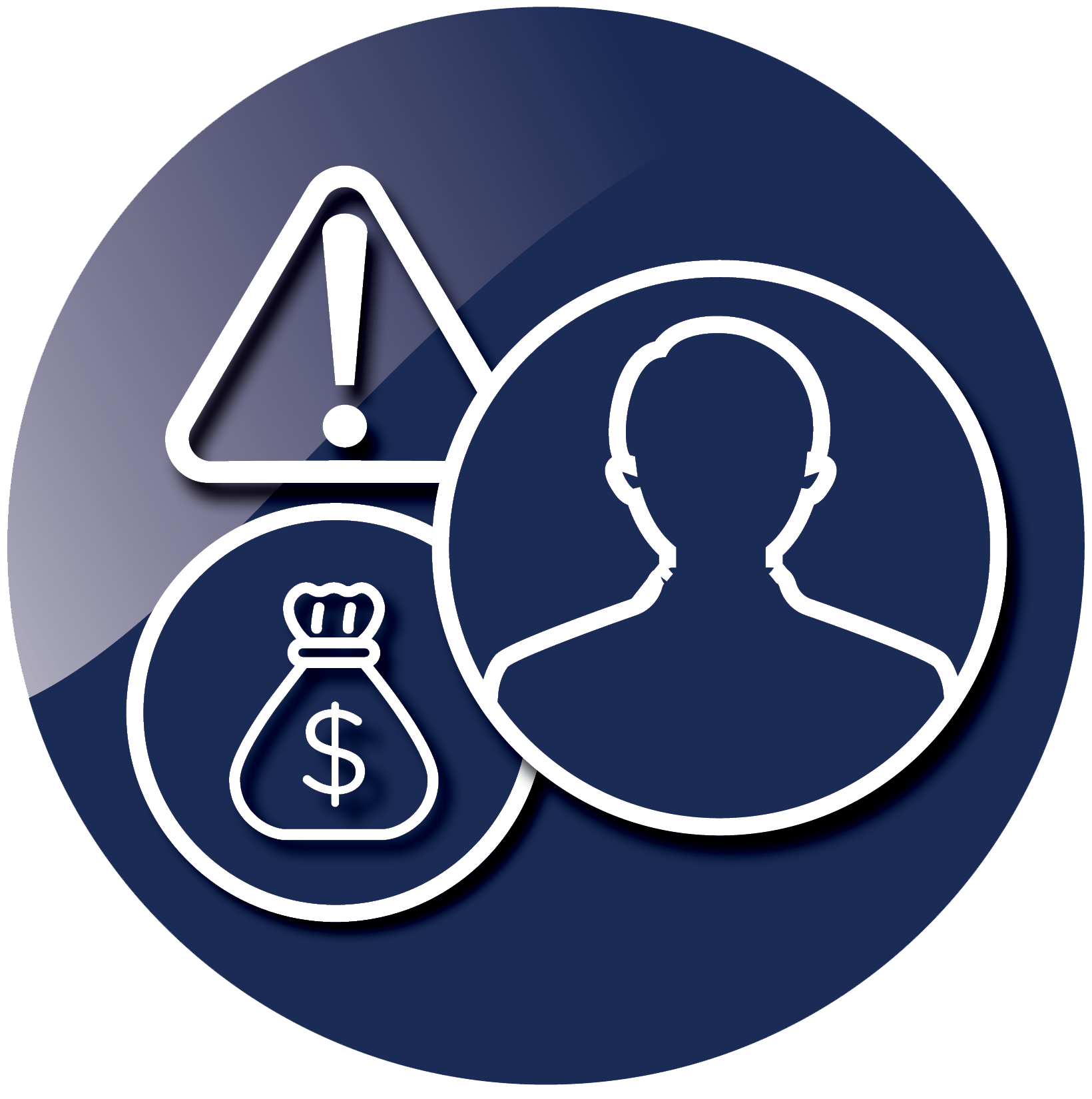The FDLE OIG receives allegations of fraud, waste, and abuse that occurred
within FDLE. If the allegations of fraud, waste and abuse are in regards to entities or persons
not associated with FDLE, this
is not the proper channel for reporting. If you believe or know of fraud, waste, abuse, misconduct or mismanagement associated with FDLE, you may contact the FDLE Office of Inspector General through the Whistle-Blower form, in-person, by mail, telephone or email.
Types of fraud, waste and abuse include:
 |
 |
 |
 |
Someone is using Department property
or members for personal gain.
|
Someone is intentionally misleading
the Department for financial gain.
|
Someone is receiving a benefit
to "look the other way".
|
Someone is committing other types of
fraud, waste, abuse, misconduct, or
mismanagement.
|

Whistle-Blower's Act
Whistle-blower complaints may be filed with the OIG or with the Office of the Chief Inspector General (OCIG). When you file a Whistle-blower complaint with the OCIG, they will review your complaint and usually refer it to the state agency to which the complaint relates for a Whistle-blower Determination. When the OIG receives a Whistle-blower complaint, either directly from the complainant or forwarded from the OCIG, the OIG will contact the complainant to conduct an interview and obtain the information needed to determine whether the complaint meets Whistle-blower criteria. Whistle-blower criteria is defined by Florida Statute (§§ 112.3187-112.31895, F.S.). To become a Whistle-blower and be given the protections outlined in the Whistle-blower’s Act, the complainant and information disclosed must meet the following criteria:
- The complainant must be a current or former employee of a state agency or an entity that contracts with the state agency, or an applicant for employment with a state agency or an entity that contracts with the state agency; and
- The information in the complaint must be one of the following:
- An alleged or suspected violation of any federal, state, or local law, rule, or regulation committed by an employee or agent of an agency or independent contractor. The violation committed must create and present a substantial and specific danger to the public’s health, safety, or welfare; or
- An alleged or suspected act of gross mismanagement, malfeasance, misfeasance, gross waste of public funds, suspected or actual Medicaid fraud or abuse, or gross neglect of duty committed by an employee or agent of an agency or independent contractor.